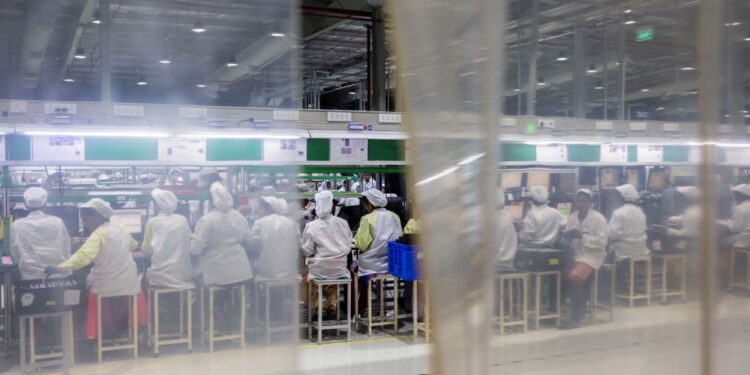NEW DELHI, July 3, 2025 — Foxconn, Apple’s largest iPhone manufacturer, has recalled over 300 Chinese engineers and technicians from its production facilities in southern India, raising questions about potential disruptions to Apple’s manufacturing plans in the country. The move, which began about two months ago, comes as Apple ramps up production for its upcoming iPhone 17 and expands its manufacturing presence in India. Sources suggest that Beijing’s efforts to limit technology and skilled labor exports may be influencing Foxconn’s decision, though no official confirmation has been provided.
Foxconn, a Taiwanese company, has been a key partner in Apple’s push to diversify its supply chain away from China, driven by rising geopolitical tensions and U.S.-China trade disputes. India has emerged as a major hub for iPhone production, assembling $22 billion worth of iPhones in the year ending March 2025, a nearly 60% increase from the previous year. The country now accounts for about one-fifth of global iPhone output, with plans to manufacture most iPhones for the U.S. market in India by late 2026.
However, the sudden withdrawal of Chinese engineers, who played a critical role in training Indian workers and setting up high-precision assembly lines, could slow Apple’s ambitions. While product quality is not expected to be affected, the absence of experienced staff may reduce assembly line efficiency during the critical iPhone 17 production ramp-up. Foxconn is now relying on Taiwanese and Vietnamese personnel to fill the gap, alongside efforts to train local Indian workers.
Reports indicate that Beijing has been quietly discouraging the transfer of technology, skilled labor, and specialized equipment to countries like India and Vietnam. Earlier this year, Chinese authorities reportedly urged local regulators to curb such exports, aiming to maintain China’s dominance in global manufacturing. This strategy aligns with broader tensions, as nations like India seek to attract tech companies diversifying their supply chains amid U.S.-China trade conflicts.
The timing of Foxconn’s decision is particularly challenging. The company is building a new iPhone assembly plant in Tamil Nadu, part of a $2.2 billion investment in India and the United States to support Apple’s manufacturing goals. The loss of Chinese expertise could delay workforce training and increase production costs, potentially impacting Apple’s plans to make India a global manufacturing hub.
Neither Apple nor Foxconn has commented officially on the move. The Indian government was informed of the staff withdrawal but received no detailed explanation, according to sources. Some analysts speculate that China’s actions are a response to India’s growing role in electronics manufacturing, fueled by Prime Minister Narendra Modi’s “Make in India” initiative. Others see it as part of a broader effort by Beijing to counter Western companies shifting production away from China.
The recall of Chinese engineers highlights the complex interplay of geopolitics, trade, and technology in global manufacturing. As Apple navigates these challenges, the outcome could shape India’s emergence as a key player in the tech supply chain. For now, the iPhone 17’s production timeline remains under scrutiny, with the tech world watching closely to see how Apple and Foxconn adapt.





































